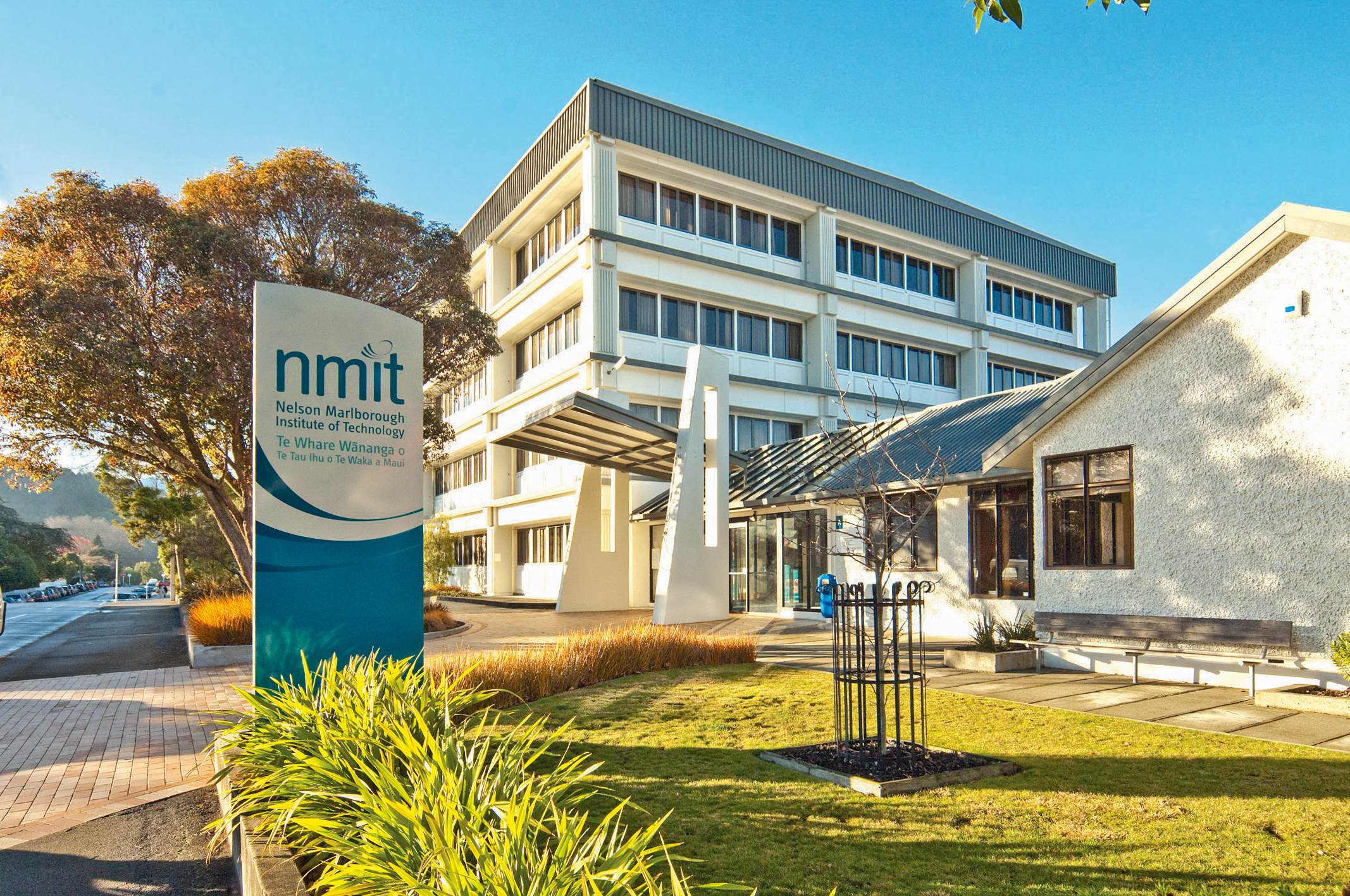NMIT proposal to cut jobs leaves staff ‘broken’


NMIT has run a deficit for nearly seven years while staffing has continued to grow and student numbers decrease. Photo: File.
More than 20 jobs at NMIT could disappear, according to a proposal sent to staff last week.
Around 75 staff received consultation letters proposing the disestablishment or change of their roles which has left many feeling “shocked” and “broken”, they have told Nelson App.
The Change Proposal, which has been viewed by the Nelson App, seeks to disestablish more than 100 full-time equivalent roles (FTE) and reestablish 80 new roles.
The changes would mean the loss of more than 20 full-time jobs.
However, NMIT executive director Olivia Hall says the process is very much in its consultation phase and wouldn’t provide numbers on role disestablishments or staff affected.
“The leadership team genuinely wants to hear feedback from kaimahi (staff) before making decisions. At this early stage of the consultation process we do not want to pre-judge any outcomes, this includes releasing any proposed numbers of disestablished roles,” she said in a statement.
The changes are part of a wider government directive setting out the expectations of the Minister for Tertiary Education and Skills, Penny Simmonds.
In letters from December and May, the minister confirmed it is no longer the intention of the government to have a centralised organisation.
Following this, decision-making has largely returned to divisions, including NMIT.
Olivia said in a letter to staff that the Change Proposal marks the next stage in the journey back to being a regionally-led polytechnic for the Top of the South.
NMIT has run a deficit for nearly seven years while staffing has continued to grow and student numbers decrease.
The proposal says the increase in staff has not correlated to a growth in educational performance indicators (EPIs) and has not led to better educational outcomes.
In 2008, NMIT had 255 full-time equivalent (FTE) staff, for 3031 full-time equivalent students with a surplus of $1.55M, however, by 2023, its deficit had grown to $5.98M with just 2239 FTE students and 304 FTE staff.
“Whilst the directive to change has come from outside NMIT, the evidence clearly indicates that without changing our current structure and ways of working we will continue to lose money, we will not see better outcomes for ākonga and we will put NMIT at risk of never being a stand-alone, regionally-led institute again,” the proposal reads.
Going forward, all teams will need to be “lean, multi-purpose, flexible, and focused on continuous improvement”.
For academic staff, work is being undertaken separately to address the cost of delivering programmes.
This includes ensuring academic staff are working to the teaching load of the FTE for which they are paid which will “significantly reduce” the requirement for additional teaching resources.
A staff member, who spoke with Nelson App on the condition of anonymity, says emails were sent to all staff on Thursday, 5 September, warning of a restructure. The following day, those who would be affected were contacted.
“What they are doing is awful, but how they are doing it is worse.”
They say the way communication has been undertaken has made staff feel disempowered and although there will be some new roles to apply for, some say they don’t want to continue working there.
“Some have had enough of NMIT and the leadership team, others are worried about rent, groceries and for them, a job is a job.”
Expressions of interest for volunteer redundancies have been called for as part of the proposal. Staff impacted by disestablishments will be given priority over other staff in the selection and short-listing process.
NMIT hopes that the entire process moves toward resolution “as quickly as possible” to reduce stress and uncertainty.
Consultation on the proposal will run until 2 October with a decision expected in mid-October and a plan for all recruitment, redeployment, retraining and redundancies to be confirmed and actioned before the end of this year.
“We acknowledge that for some kaimahi, this process will be extremely unsettling and upsetting.
“We also know that several of our kaimahi and teams that would usually support kaimahi through this process are also impacted by the change proposal.”
Nelson MP Rachel Boyack says the proposal would be a “massive loss”.
“Te Pūkenga was bringing benefits and one of the things we were seeing was closeness to industry.
“To break it up without a plan... it’s absolutely gutting.”
